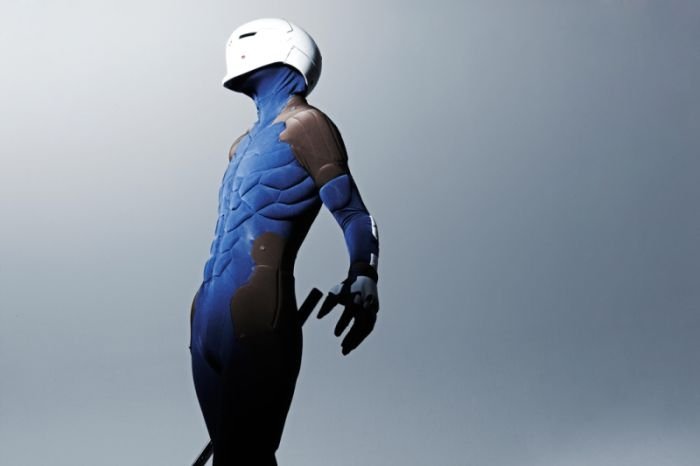|
|
Grey Fox, Metal Gear Cosplay Costume
|
Although the series has a war setting and is of the action genre, and thus contains large amounts of graphic violence, it has an underlying tone of pacifism. This is reflected throughout the series which has dealt with such themes as the futility of war, the absurdity of nuclear deterrence, the dangers of nuclear weapons in general, the psychological effects of warfare on children and adults, the concept that enemies are only enemies in relative terms, and motivations behind the different lifestyles individuals choose. This tone and some of these themes reflect the mindset of a large amount of the Japanese cinema made since the bombings of Hiroshima and Nagasaki in 1945. Another recurring theme is the negative portrayal of centralized governments as seen in MGS2: Sons of Liberty.
The original Metal Gear, which was released in 1987 during the Cold War, dealt with the manipulation of soldiers by politicians of the East and West, countered by the concept of "Outer Heaven", a country without politics. Its sequel Metal Gear 2: Solid Snake, which was released in 1990 at the end of the Cold War, expanded on this with themes regarding political intrigue, battlefield ethics, military history, and the negative effects of warfare.
The overarching theme of the Metal Gear Solid series is that of the "gene, meme, scene and sense" and how people are affected by these factors according to the game's producer Kojima — Metal Gear Solid deals with genetics and the moral implications of genetic engineering, Metal Gear Solid 2: Sons of Liberty deals with how identity can be affected by the philosophies of one's society (a 'meme') and the effects of censorship on society, Metal Gear Solid 3: Snake Eater deals with how the time and place one lives in (a 'scene') affects their identity and how politics change along with the times, and Metal Gear Solid 4: Guns of the Patriots deals with the 'sense' that people die, things move on and times change and that life shouldn't be lived fighting.
The longest running theme of the series is the continued manipulation of soldiers by politicians, against which the revolutionary "Outer Heaven" ideal serves as a countermeasure. The original main villain, Big Boss, attempted to establish a purely military nation run by mercenaries solely for mercenaries. The succeeding games' villains felt they shared this ideal, coming up with new ways to create this so-called country without politics. Recently, the series has shown Big Boss in prequel games as the protagonist: a mercenary that is continually manipulated and forced through subsequent tragedies.
|
|









